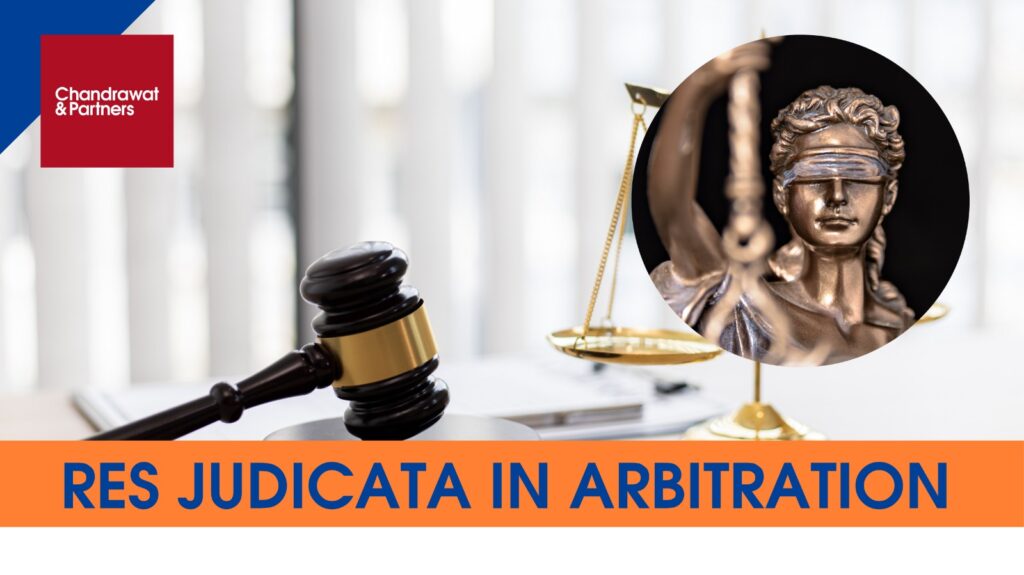Res Judicata In Arbitration
With alternative dispute resolution becoming more mainstream due to its cost-effectiveness, procedural flexibility, and relatively quick results, it has become a part of the legal system of the country as arbitral tribunals are seen as alternatives to courts.
The doctrine of res judicata was developed from the jus honorarium, that is, law based on a judge’s concept of what was fair or right (equity) and not upon the strict letter of the law. The occurrence of two enforceable decisions on the same topic between the same parties would violate procedural public policy.
What is Res Judicata?
Res means “subject matter” and judicata means “adjudged” or decided; together it means “a matter adjudged”. Res judicata originated in the Code of Civil Procedure and then entered the Indian legal system. Res judicata comes into being when either of the parties approaches the court after a judgement has already been passed for the same issue.
In essence, res judicata entails that a prior and final decision is binding in later cases involving the same (i) parties, (ii) subject matter, and (iii) legal grounds, often known as the “triple-identity criteria.”
The Doctrine of Res Judicata
The doctrine of Res Judicata is provided under Article 20(2) of the Constitution of India and Section 11 of the Code of Civil Procedure incorporates the doctrine of res judicata, also known as the “rule of conclusiveness of judgment”. It protects people from being put on a second trial after the case has already been adjudicated. So, the doctrine of res judicata addresses this issue, and it bars any party from retrying a judgement once it has been decided.
For example, in Dadu Dayalu Mahasabha v. Mahant Ram Niwas & Anr, the Supreme Court dismissed a case. The respondent filed another case with the same issue, but the learned trial judge, by his judgment, opined that the said suit was barred by the principles of res judicata, the issues arising therein being directly and substantially at issue between the parties in the previous suit as well. It dealt with in detail how the causes of actions in both the suits were the same. The principle of res judicata is a general principle of law known both to international law and local law. Like judgments from local courts, international arbitral awards are considered to be final and binding.
Generally, arbitral tribunals have to decide on the res judicata effect of a prior court decision. However, res judicata issues can also emerge between arbitral awards rendered by different arbitral tribunals.
Preclusive Effect on Subsequent Arbitration Proceedings
In arbitration, one of the major issues that comes up in practise is the application of the principle of res judicata. In India, it is well known that the use of res judicata in arbitration is not limited to litigation and arbitration alone. Its usage in arbitration should be strictly regulated due to the ease with which it may be abused. A party may employ the concept of res judicata as a delay or pressure strategy. It can be used to badger the other party into withdrawing the lawsuit or resolving it without regard to the repercussions. It directly threatens the administration of justice, which is contrary to our nation’s and constitution’s values.
Formal court judgements that apply standards of evidence and civil process are presumed to have appropriate procedural regularity. If arbitrators choose to apply precautionary doctrines, such as cause of action and issue estoppel, decided in a prior lawsuit in later arbitration procedures, they will not create obstacles. There are, however, two scenarios in which arbitral tribunals must unquestionably consider whether claims or questions sought to be adjudicated are precluded by res judicata because of past court rulings.
First, it occurs when the arbitrability of a dispute has already been determined in a prior court ruling, and then one of the parties moves to an arbitration panel to re-argue its claim. This claim is prohibited under the rules of international arbitration because it amounts to collateral estoppel. Moreover, it contradicts the purpose of the notion of res judicata, which abhors needless vexation.
Second, it occurs when parties initiate litigation despite having already entered into a legitimate arbitration agreement and neither party objects. The losing party then tries to re-argue its claim before the arbitration panel by utilising the agreement’s arbitration provision. This claim is likewise inadmissible in international commercial arbitration since the losing party is forum shopping and abusing the judicial system. Consequently, in these two instances, the earlier court ruling demonstrates the preclusive impact of cause of action and issue estoppel on later arbitration proceedings.
The Current Position
International disputes are becoming more complex, involving multiple proceedings which means that more arbitral tribunals will have to rule on res judicata issues. This may increase the number of international awards with inconsistent outcomes, especially in international commercial arbitration.The purpose of res judicata is to prohibit the misuse of the law. There is neither a correct nor erroneous answer in relation to the law of res judicata, nor is there a preset tactic that an international arbitration panel employs. The individual tribunal will have the ability to decide after considering all factors relevant to the particular dispute, including the arbitration agreement and a previous decision. As a consequence, this creates uncertainty regarding res judicata for the parties and the counsel participating in arbitration. Arbitral tribunals should apply the res judicata concept because arbitral tribunals are alternatives to courts, and when an award is executed, it becomes part of the legal system of the country where it is implemented.
For more information or queries, please email us at
enquiries@chandrawatpartners.com



